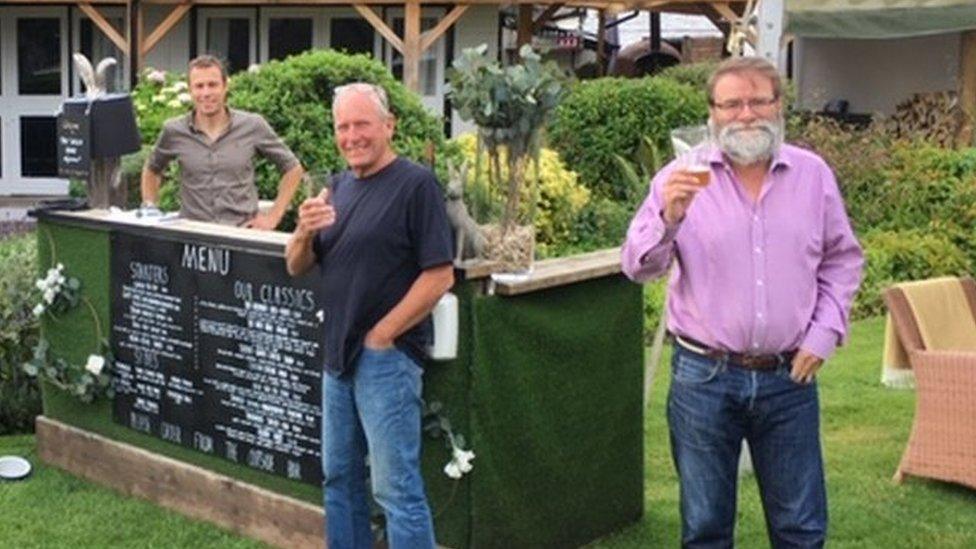Coronavirus: Royal Welsh cancellation 'will be felt for years'
- Published
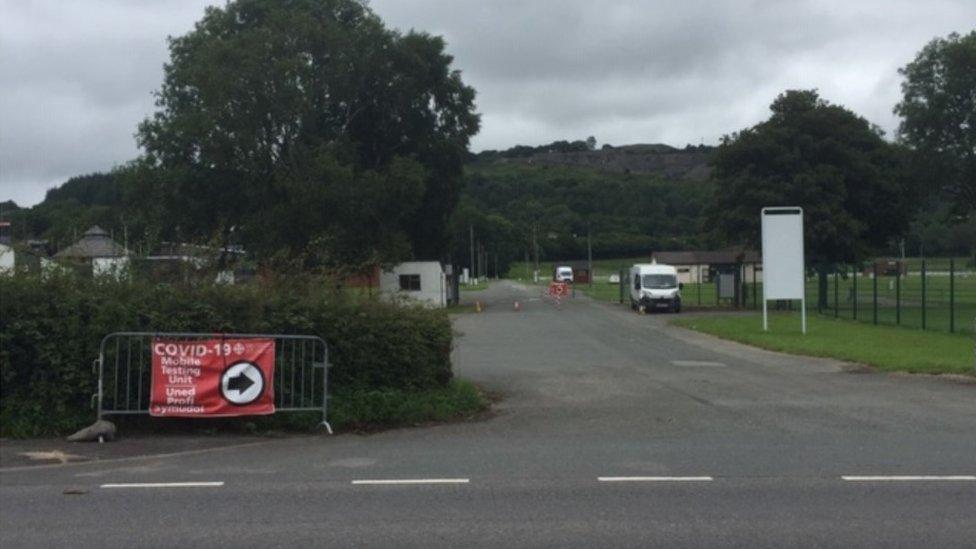
The showground site is now a testing centre for Covid-19
The cancellation of this year's Royal Welsh Show will be felt for many years to come, according to business owners.
It attracts a quarter of a million visitors, 8,000 sheep, cattle, horse and other livestock, as well as bringing £40m to the Powys economy.
The show at Llanelwedd is described as Europe's biggest.
But on the week it was due to take place, the fields near Builth Wells are being used as a Covid-19 testing centre.
"The cancellation of this year's show not only affects my everyday life but also our shop window for our livestock," said Bethan Jones.
"It's a very big, important event in my life and my family's life and everybody around this area."
She lives on a farm near Builth Wells, working with brother Rhodri, but also works as a livestock officer at the show - a role she is currently on furlough leave from.
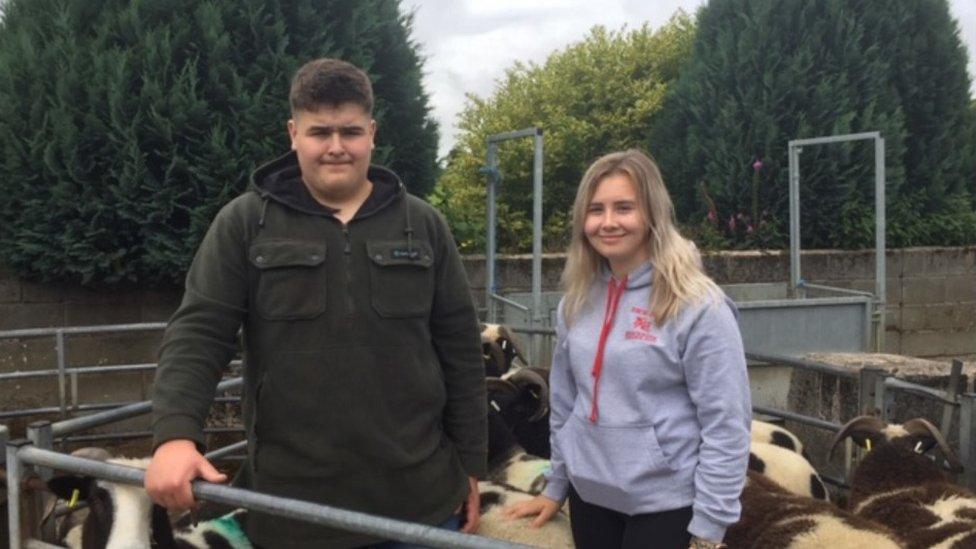
The show is a "shop window" for farmers like siblings Rhodri and Bethan Jones
The Royal Welsh Agricultural Society estimates the cost of cancelling this year's show to be about £1.2m.
It said it could take up to five years to recover.
But the economic impact will stretch much further than the showground in Llanelwedd.
The nearby town of Builth Wells will bear the brunt of those losses. At the Greyhound Hotel, rooms are booked annually for show week.
It is easily their busiest time of the year and owner Alison Parker cannot begin to count the cost for her business.
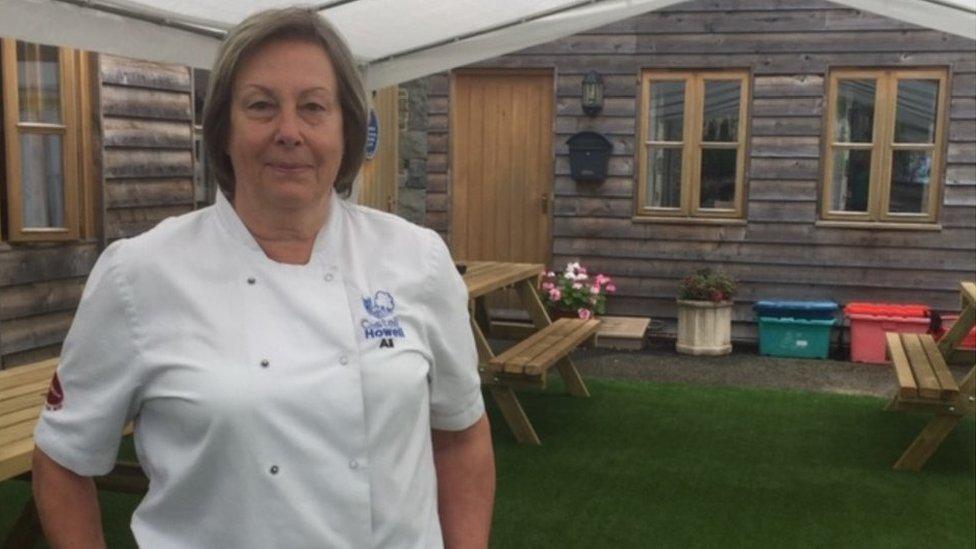
Alison Parker says the show helps her business through the "lean months"
"It frightens me - I don't want to look because we've just got empty rooms," she said,
"I can't really emphasise how important this one week of the year is. It's not just the four days, it's the week before and after too.
"Normally the monies we take during show week helps us through the lean months - December, January and February.
"We won't have that and also because of everything else being cancelled on the showground, we won't have that income either so it's a huge loss for the town."
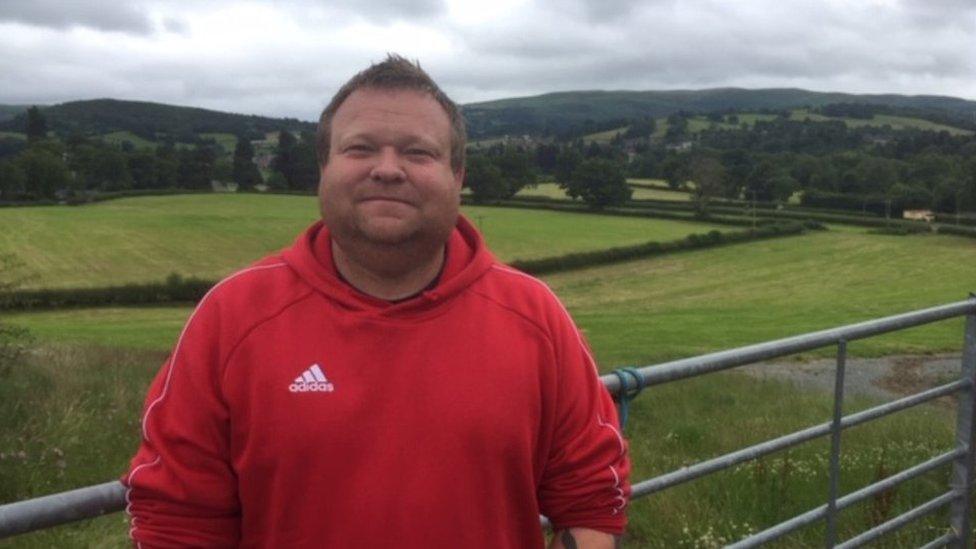
Mayor of Builth Wells Gwyn Davies believes the impact could be devastating
The Royal Welsh site also hosts the annual winter fair, the spring festival and numerous other events like dog shows and conferences.
Many of these have also been cancelled, although a decision has yet to be made about the winter fair.
Penmaenau farm directly overlooks the showground and provides land and security for parking and camping during the Royal Welsh Show.
Its farm sheds even become a popular party venue for visitors to the show.
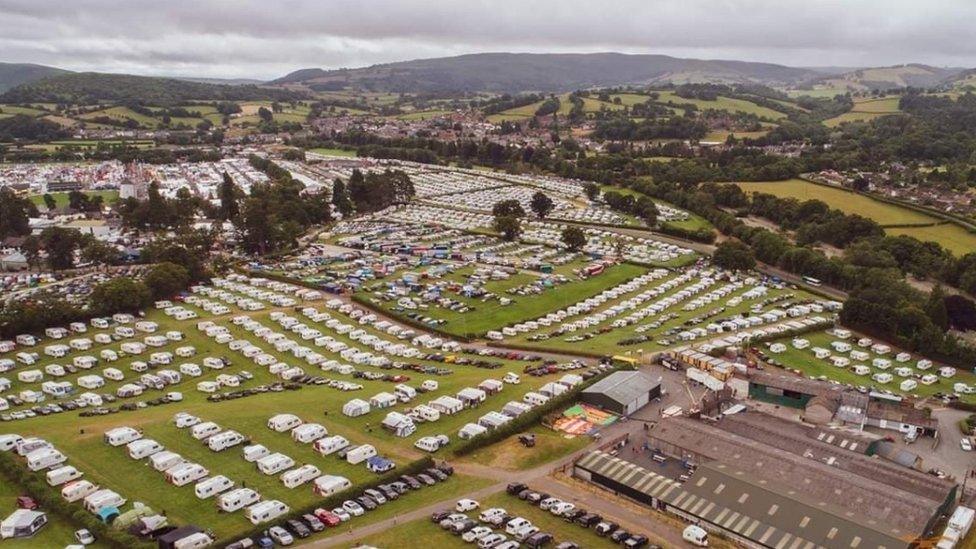
The fields around the show site are usually full
But this year there will be no work for the hundreds of extra staff they usually employ during the show.
Gwyn Davies, who co-owns the farm with his mother and brothers, is also the current mayor of Builth Wells.
He said recovering from such heavy losses would be harder in a rural area.
"The show has a knock-on effect in many ways: people may not make money directly, but indirectly the pubs and restaurants on the main street do. For them it can be a big part of their annual income and it could be devastating," he said.
"It's going to be mentally and financially a strain on anyone who was in any small part involved with the show. We are all just hoping it returns bigger and better and we can all move forward."
This year's Royal Welsh has become a virtual event and people are being encouraged to share and enjoy their memories of the show online.
But it will not make up for the losses faced by many businesses in mid Wales and beyond which rely on this one week in July to make hay while the sun shines.
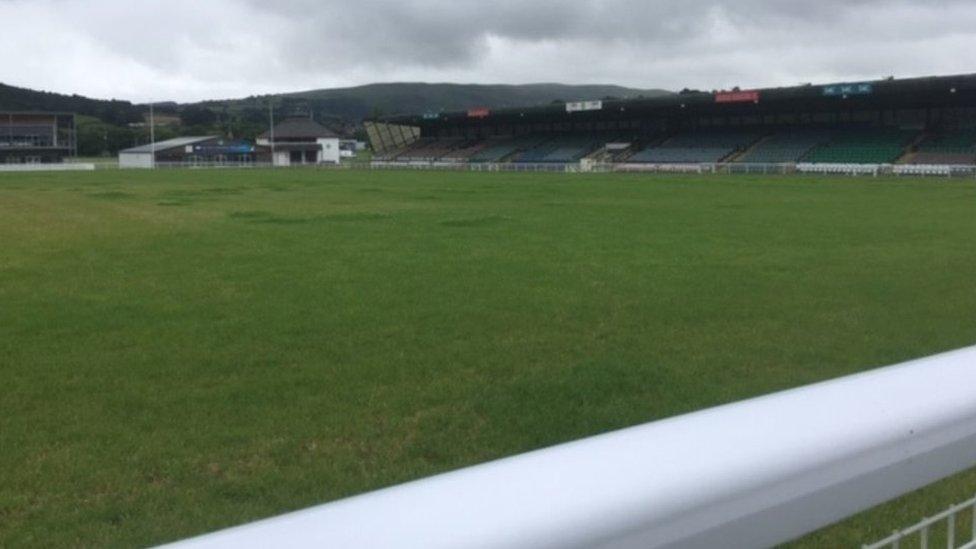
There will be no livestock on display this year
- Published1 July 2020
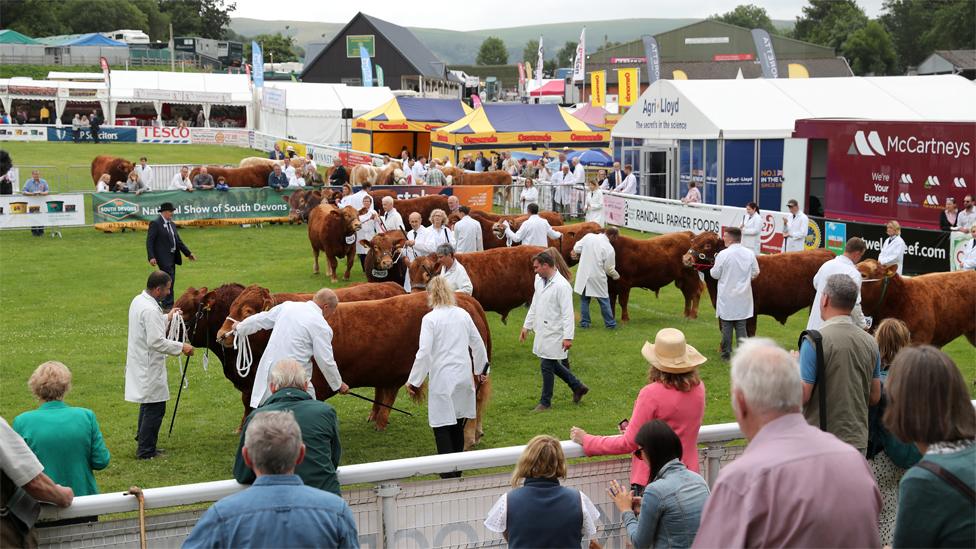
- Published13 July 2020
